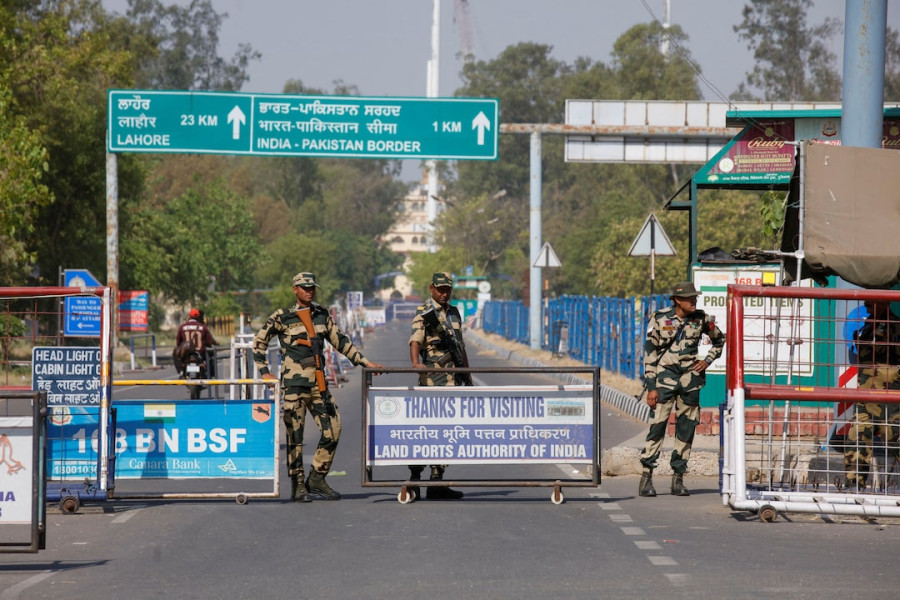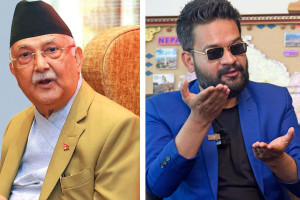Columns
Pahalgam—Modi govt’s toughest moment yet
The terror attack puts it in a quandary on three fronts: Domestic, international and messaging to perpetrators.
Ruhi Tewari
The savage massacre of tourists by terrorists in Kashmir’s Pahalgam and its aftermath are the toughest challenge yet for the Prime Minister Narendra Modi-led government in its 11 years of being in power. Not just because it was a brutal and brazen attack on helpless civilians, or because it reflects a degree of security lapse and intelligence failure or because it punctures the government’s claims of a significant reduction in terror-related incidents in the Valley. This is the Modi government’s biggest crisis so far, even bigger than the 2019 Pulwama attack, as it puts it in a sticky spot with respect to three fronts—domestic, international and messaging to Pakistan.
On the domestic front, the government, known for its muscular and hardline national security stance, must send out the right message and be seen to be doing something significant to assuage the collective anger. On the other hand, however, it has to escalate the situation without crossing a certain line and risking alienating the global community that has so far overwhelmingly thrown its weight behind India. And most importantly, as it tries to pacify its domestic audience while balancing the international front, it has to be extra cautious not to allow its brand of majoritarian politics to become the dominant message, thereby playing right into the hands of the enemies.
On April 22, as many as 26 civilians—25 Indians (including one local) and a Nepali citizen—were killed in a terrorist attack at Baisaran, a popular tourist spot in Pahalgam. The Resistance Front, a shadow group of the banned Pakistan-based Lashkar-e-Taiba (LeT) terror group, claimed responsibility. With that, India began its diplomatic offensive against the neighbouring country. On Tuesday, Prime Minister Modi at a key security meeting is believed to have said the armed forces have “full operational freedom to determine the mode, targets, and timing of India’s response to the attacks”, indicating it was not shying away from a military offensive.
But, even as the Modi government weighs its options, it is aware that it faces its most daunting challenge since entering the national scene in the summer of 2014.
The domestic vs international balancing act
The BJP, under the leadership of PM Modi and Home Minister Amit Shah, has built its politics around a carefully curated muscular national security stand, often even mocking its predecessor, the Congress-led United Progressive Alliance (UPA) government for being ‘soft on terror’. For such a government, therefore, an attack of the nature and magnitude of the one in Pahalgam puts it under pressure to be seen as upping the ante and teaching the perpetrators a lesson.
Post the February 2019 terror attack in Pulwama in Jammu and Kashmir by a suicide bomber that killed 40 personnel of the Central Reserve Police Forces (CRPF), the Modi government retaliated militarily with the Indian Air Force bombing the terrorist group Jaish-e-Mohammed’s camp in Balakot in Pakistan-Occupied-Kashmir. Before that, in 2016, India carried out surgical strikes inside Pakistan-occupied Kashmir in response to an attack on an Indian army camp in Uri.
This government’s response to terror strikes, therefore, has been one laden with tough messaging. What, however, makes the Pahalgam attack different from both Pulwama and Uri is the targeting of innocent tourists who were simply in the Valley to enjoy some peace and calm. The images from the site of attack have shaken the entire nation, bringing to the fore outrage and grief of another magnitude. People are angry, but there is also fear—the kind that comes with an attack on someone we view as one of us, as opposed to one on security forces.
The BJP government is well aware of this, and its messaging has been commensurate with the public anger. With statements like “It is our national resolve to deliver a crushing blow to terrorism” and “India will identify, track and punish every terrorist and their backers”, the prime minister has himself led from the front.
However, the BJP is aware of the need to be seen as walking the talk and doing something that, to its voters, seems bigger than the surgical strikes and Balakot airstrikes. Given its tough image and the whole idea of a ‘teflon’ PM, the BJP can ill afford not to be seen as doing enough by its domestic constituency.
If it has its domestic constituency to appease on the one hand, the Modi government, on the other hand, has to toe a fine line so as not to alienate the international community. The massacre saw unprecedented global support for India from a wide cross-section of countries and world leaders. With the brazen and barbaric nature of the attack, India is a clear victim that has an upper hand as far as solidarity from the international community is concerned. It, therefore, has to be mindful of not overplaying its hand.
As it plans retaliatory measures, India has to be cautious not to cross a fine line that changes its position as a victim to that of a disproportionate aggressor. The government is seasoned enough to understand the nuances of diplomacy and international equations. Thus, the massive challenge is to maintain a fine balance between its domestic compulsions and international expectations.
The slippery slope—majoritarianism
Beyond the domestic messaging and international positioning, the Modi government’s toughest task would be to resist the urge of slipping into its favourite political trope—majoritarianism.
Beyond a military offensive and international censure, the biggest message India can send to the perpetrators and the world at large is one of unity and the full support of the Kashmiri people. Large-scale protests against the gruesome attack erupted across the Valley, and Kashmiris led from the front in strongly condemning them. A lot has been written and said about the acts of kindness and empathy displayed by the average Kashmiri in the aftermath. The outrage was deep, and the anger was intense. There is no bigger damning message for the perpetrators than to see Kashmir unequivocally censure such acts.
However, threats and attacks on Kashmiris in other parts of the country single-handedly defeat the cause, betraying deep schisms within. Not to mention the dangerous impact of such acts in alienating Kashmir, which was finally showing signs of healing.
Equally important is that the Hindu versus Muslim chasm is already raising its ugly head, further displaying a complete lack of cohesiveness and unity in the polity. Yes, this was an attack by Islamic terrorists, but blaming or isolating the Indian Muslim is as shameful and as heartless.
The onus of keeping its ecosystem in check and nipping any such attempts in the bud also lies with it. The BJP has built its politics on not just a strong national security premise but, more importantly, on an aggressive brand of Hindutva. At this moment, even a slight hint of this divide, or estrangement of Kashmiris, does nothing but play straight into the hands of the terrorists and the country’s enemies. A nation fighting within the aftermath of such a dastardly act by extraneous forces is half the battle won for those behind it.
To tide through its biggest crisis, the Modi government, therefore, has to display an evolved degree of maturity and statesmanship, combined with an unyielding response to terrorists and garnished with some fine diplomatic manoeuvring.




 17.12°C Kathmandu
17.12°C Kathmandu















